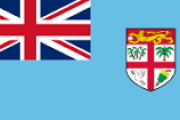Mr Chair,
I have the honour to deliver this statement on behalf of the 12 members of the Pacific Small Island Developing States, namely the Federated States of Micronesia, Kiribati, Republic of the Marshall Islands, Nauru, Palau, Papua New Guinea, Samoa, Solomon Islands, Tonga, Tuvalu, Vanuatu and my own country Fiji. In so doing, I would like to associate this statement with the statements delivered by Belize on behalf of the Alliance of Small Island States (AOSIS) and Tuvalu on behalf of the Pacific Island Forum (PIF).
As this is my first time taking the floor in this Committee, allow me to congratulate you for your appointment as Chairman of the Sixth Committee. I also congratulate the members of your Bureau on their election. Please be assured of the PSIDS full support throughout the work of the Committee.
Mr Chair,
The PSIDS joins others in thanking the International Law Commission and especially the Study Group on Sea-Level rise in relation to International Law for their work this year, despite the challenging circumstances of COVID19. Although there was no written report by the ILC, we appreciate the oral reports that have been given to Members and the ‘First Issues’ paper produced by two Co-chairs of the Study Group. The paper sets a strong foundation for even more in-depth discussions on the topic of ‘sea level rise in relation to international law’ between Members and we look forward to its formal consideration in the ILC next year.
The Intergovernmental Panel on Climate Change (IPCC) reported that sea levels will continue to rise on average, over a meter by 2100 and that certain regions of the world are more likely to experience sea-level rise sooner and more extensively than other regions despite our best efforts.
The low-lying small Island States and atolls within the Pacific region, are currently the most vulnerable to sea-level rise and are experiencing, limited access to fresh water, limited food supplies as a result of saltwater inundation and coastal erosion. Sea-level rise affects wellbeing, livelihoods, infrastructure, and economies and will continue to bring destruction, displacement, and instability into the future and in this same vein PSIDS continuously calls for the recognition of the climate change and security nexus. The Pacific cannot stress enough the adverse impacts climate change and sea level rise will have on our communities, hindering our developmental progress and the 17 sustainable development goals by 2030.
Mr Chair,
Through the inclusion of the topic of sea-level rise into the programme of work of the ILC, member states are provided an opportunity to voice priorities and concerns and pose serious legal questions regarding related issues such as the regulation of maritime entitlements, delimitation of maritime zones and the rights of Coastal States to an extended continental shelf. Under the framework of United Nations Convention on the Law of the Sea (UNCLOS), the work of the ILC will assist in strengthening this area.
The Pacific remains committed to a collective effort to develop international law to ensure that the maritime zones of Pacific member States are delineated in accordance with the 1982 UNCLOS and that these maritime zones could not be challenged or reduced as a result of sea level rise and climate change.
We therefore call on other member States to recognize the need of retaining maritime zones and the entitlements that flow from such maritime zones once delineated in accordance with UNCLOS and discussions at the ILC is central to these efforts.
Thank you.


